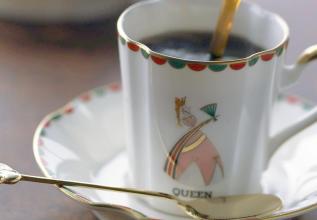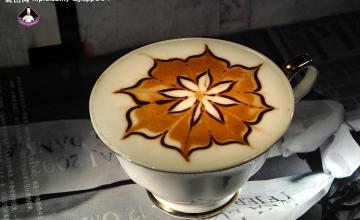More slippery Indonesian Manning Coffee Flavor and taste introduction to the characteristics of boutique coffee in manor area
A number of scattered feudal kingdoms were established in the 7th century AD. Recorded dynasties include the death of the Buddhist Sri Buddha (mid-7th century-1293), who was conquered by Manabache, and the Kingdom of New Keshari, which controlled the Strait of Malacca (1222-1292), which led to the Yuan-claw War. later, with the help of the Yuan army, the royal family established the most powerful feudal empire of Manabacher in Indonesian history (1293-1478).
In the 15th century, Portugal, Spain and Britain invaded successively. The Dutch invaded in 1596, the East India Company with government authority was established in 1602, and the colonial government was set up at the end of 1799.
Japan occupied Indonesia in 1942. After Japan surrendered in 1945, Indonesia broke out the August Revolution. On August 17, 1945, it declared its independence and established the Republic of Indonesia.
After its independence, Indonesia successively armed against the invasion of Britain and the Netherlands, and launched three wars of independence. After 1947, after many wars and consultations, the Netherlands and Indonesia signed the India-Netherlands Round Table Agreement in November 1949. According to this agreement, Indonesia established a federal republic on December 27 of the same year to participate in the Union of the Netherlands and India.
In August 1950, the Federal Assembly of Indonesia formally announced the establishment of the Republic of Indonesia through an interim constitution, and Indonesia became the 60th member of the United Nations in the same year. In August 1954, Indonesia seceded from the Union of the Netherlands and India, and in August 2005, the Indonesian government reached a peace agreement with the separatist organization of the Aceh Independence Movement. In July 2006, the Indonesian Congress passed the Aceh Management Law. In December 2006, Aceh held local elections, and former leaders of the "Asian independence movement", Irvandi Yusuf (Irwandi Yusuf) and Mohamed Nazar (Muhammad Nazar), were elected governors and vice governors. In April 2012, former leaders of the Aceh Independence Army, Zaini Abdullah and Muzakir Manaf, were elected governors and vice governors for a term of office until 2017.
In July 2006, the Indonesian Parliament passed the new nationality Law, which removes some elements of racial discrimination and gender discrimination. In October 2008, the Indonesian Congress passed the Law on the Elimination of racial Discrimination. [7]
Abolish the title of **
In March 2014, Indonesian President Susilo Bambang Yudhoyono signed Presidential decision No. 12 of 2014, formally repealing Circular No. 6 of 1967 and renaming ** (cina) as "China". Circular No. 6 of 1967, a product of the era of former Indonesian President Suharto, contains discrimination and insult to the national dignity and personality of China and the Chinese. The local Chinese said that the discriminatory terms against China and Chinese for more than 40 years will be gone forever, which is a manifestation of Indonesia's democratic political progress. Medan is the capital of North Sumatra province, with an urban area of 342 square meters and a population of about 1.8 million. It is the third largest city in Indonesia. Bordering the Strait of Malacca, it is the west gate of Indonesia's foreign trade and one of the main entry and exit ports for domestic and foreign tourists. The establishment of the economic growth triangle in Indonesia, Malaysia and Thailand has strengthened its position as the development center of Jiangsu Province and northern Indonesia. it has promoted the rapid development of the city's small industries such as food processing, textile industry, leather goods, chemical industry, building materials, metals and means of transportation. The city has a clean appearance, shady trees and a pleasant climate. The Sultan Palace in the city was built in 1888
Mantenin coffee beans have large granules and hard beans, and they are prone to defects in the process of planting. After harvest, they are usually subject to strict manual selection. If the control process is not strict enough, it is easy to cause a mixture of good and bad quality. in addition, the different degree of baking will also directly affect the taste, so it has become a more controversial single product. Mantenin has a strong taste, with a strong mellow and rich and lively sense of movement, neither astringent nor sour, mellow and bitter can be fully revealed. The appearance of Mantenin coffee beans can be said to be the ugliest, but coffee fans say that the worse the Sumatran coffee beans are, the better, mellow and slippery the coffee is.
Manning Coffee is produced in Sumatra, Indonesia, Asia, also known as "Sumatran Coffee". The main producing areas are Java, Sulawesi and Sumatra, 90% of which are Robusta species. Among them, the "Mantelin" produced in Sumatra is the most famous. The best of the exquisite traditional Arabica coffee produced in northern Sumatra of Sumatra is sold as Lindong Lintong and Manning Mandheling. To be exact, Lindong Lintong refers to coffee growing in a small area in the southwest of Lake Toba in Lindong District. The small coffee growing area is scattered on a high and wavy clay plateau full of fern covers. Lintong Lindong Coffee is grown without shade, does not use chemicals, and is almost entirely owned by small private owners. Mandheling Manning is a broader term, including Lintong Lindong Coffee and similar conditions of Diari [the capital Sidikalang], the northern growing area of Toba Lake Gold Manning, the Japanese used more stringent quality control more than a decade ago, after four manual picking beans, eliminate defective beans, produced a dark green color, uniform beans of Golden Manning, creating another wave of market demand, even Europe and the United States are crazy for it.
The aged Agedmandheling is as sweet as honey. The successful old bean has worn away Manning's inelegant sour taste. The sour ingredients are ripe and converted to sugar, making the coffee more round and sweeter to drink. Manning is like a coffee zombie in the old age of failure, and the taste is difficult to taste.

Important Notice :
前街咖啡 FrontStreet Coffee has moved to new addredd:
FrontStreet Coffee Address: 315,Donghua East Road,GuangZhou
Tel:020 38364473
- Prev

Special sweet Panamanian Pokuit butterfly coffee beans boutique coffee taste manor area introduction
Panama City (Panama city), located on the peninsula near the mouth of the Pacific coast of the Panama Canal. Facing the Gulf of Panama and backed by the Ankang Valley, the city is picturesque. Originally an Indian fishing village, the old city was founded in 1519 and became the capital after Panama declared its independence from Colombia in 1903. The 2010 Panamanian National Congress has a total population of 1.71 million.
- Next

Introduction to the Jamaican Blue Mountain Coffee Flavor Manor with a good balance of acid, sugar, alcohol and bitterness
By the time the Europeans arrived in Australia, the Blue Mountains had been occupied for thousands of years by local aborigines, the Gundungurra, who are now represented by the Aboriginal companies of the Gundonggula tribal council in Katumba. According to indigenous legend, Blue Mountain originated from the legendary battle between dream creatures Mirigan and Garangatch, who is rumored to have it.
Related
- Detailed explanation of Jadeite planting Land in Panamanian Jadeite Manor introduction to the grading system of Jadeite competitive bidding, Red bid, Green bid and Rose Summer
- Story of Coffee planting in Brenka region of Costa Rica Stonehenge Manor anaerobic heavy honey treatment of flavor mouth
- What's on the barrel of Blue Mountain Coffee beans?
- Can American coffee also pull flowers? How to use hot American style to pull out a good-looking pattern?
- Can you make a cold extract with coffee beans? What is the right proportion for cold-extracted coffee formula?
- Indonesian PWN Gold Mandrine Coffee Origin Features Flavor How to Chong? Mandolin coffee is American.
- A brief introduction to the flavor characteristics of Brazilian yellow bourbon coffee beans
- What is the effect of different water quality on the flavor of cold-extracted coffee? What kind of water is best for brewing coffee?
- Why do you think of Rose Summer whenever you mention Panamanian coffee?
- Introduction to the characteristics of authentic blue mountain coffee bean producing areas? What is the CIB Coffee Authority in Jamaica?

